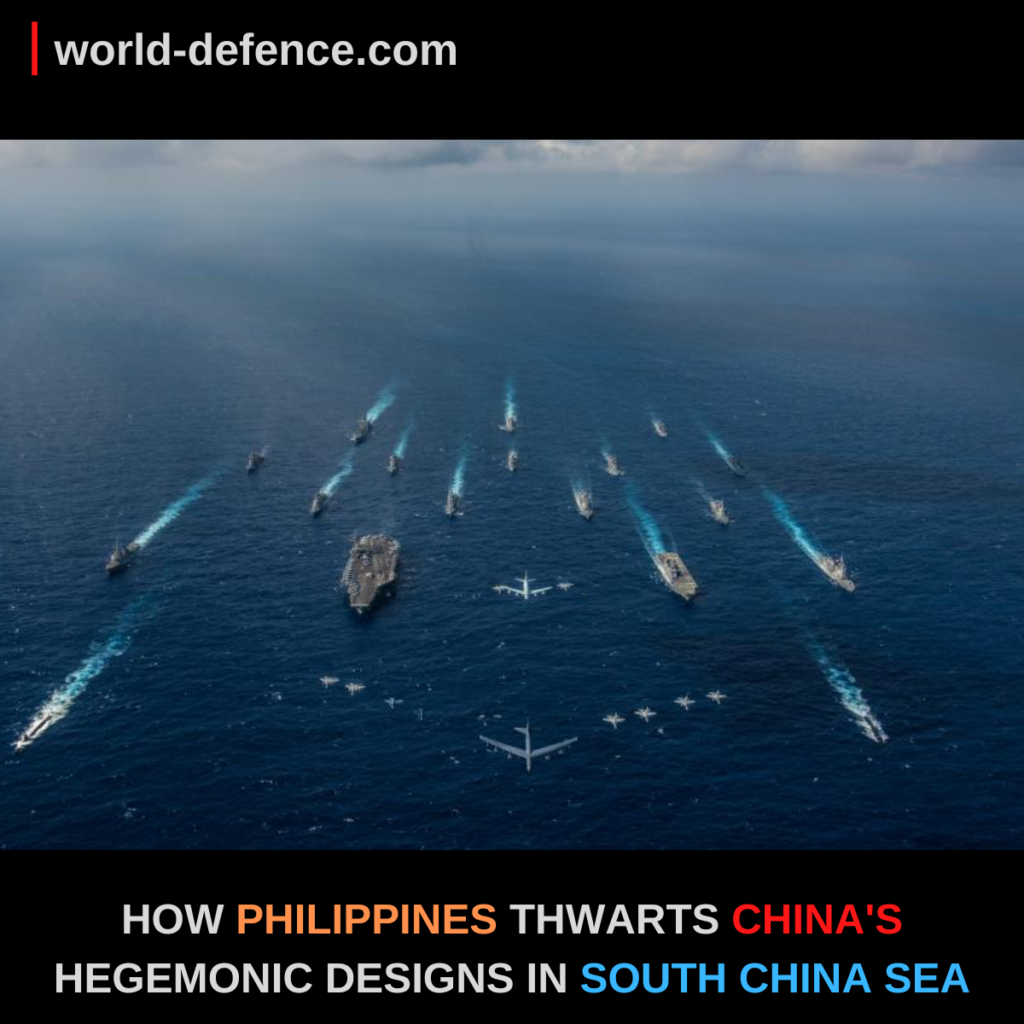Hong Kong: China’s hegemonic desires in the South China Sea have resulted in a significant downfall in the relations between Manila and Beijing with increased hostilities, reported The HK Post.
Beijing unilaterally attempted to alter regional stability by asserting its claim over the South China Sea in 2009, the report said, adding that the move has since then strained China’s bilateral relations with not only the Philippines but also with other Southeast nations as well.
Manila has been amongst the handful of nations that have stood up to China’s assertive behaviour in the volatile region, reported The HK Post.
READ MORE: Taiwan stops China’s invasion, but at a ‘enormous’ cost
Since its assertion in the South China Sea, China has prevented the Philippines from initiating oil and gas developmental projects and has limited Manila’s fishing expeditions in the disputed region.
Moreover, China’s forceful assertion over the waters has included Exclusive Economic Zones (EEZ) formed by the Philippines thus leading to a case for arbitral proceedings against China’s obnoxious claims, it added.
The decision of the tribunal has since then been rejected by China, which went against Chinese claims over the region. Far less from easing tensions, China has been intensifying its forceful assertiveness over the South China Sea provoking diplomatic tensions between the two nations, reported The HK Post.
READ MORE: Russians demand return of Liaoning – the Soviet aircraft carrier that China bought from Ukraine
The geographically strategic region of the South China sea encompasses 3.5 million sq km of area and is adjoined by seven nations including the Philippines, Malaysia, Brunei, Indonesia, Singapore, Vietnam and China. It presents the shortest shipping route between the Indian Ocean and Northeast Asia, thus signifying its strategic value.
The Philippines have claimed that China, in its attempt to allegedly alter the status quo, has developed disputed reefs into artificial islands with permanent structures.
The artificial islands in the debate around China’s hegemonic aspirations have been understood to be fortified as military bases over not only international waters but much worse, over sovereign waterways of the Philippines state, the report said.
This unilateral alteration of persisting understandings is in clear violation of the sovereignty of China’s neighbouring countries, it added.
The dispute with the Philippines in particular has been aggressive, especially with regard to the Spratly Islands and the Scarborough Shoal, over which Beijing claims territorial dominance, reported The HK Post.
Chinese maritime forces have been accused of igniting conflicts with their Filipino counterparts by regularly harassing fishing boats and fishermen from the Philippines over the unilaterally invoked disputed region.
The Chinese navy has also been blockading supply dispatched for BRP Sierra Madre, a World War II-era warship, which currently serves as an outpost of the Philippine Marine Corps to assert its sovereignty over the disputed ownership of the Spratly Islands, the report claimed.
Most recently, the Philippines military claimed that the Chinese coast guard forcibly seized Chinese rocket debris that the Filipino navy had recovered from the South China Sea near the Thithu islands. In order to subvert the issue, Chinese officials had claimed that no such seizure was conducted, reported The HK Post.
The incident occurred hours prior to a historic visit by Kamala Harris, US Vice President, to the Philippines for increased security cooperation talks between the two long-term allies.
More so, the Thithu islands, which is also referred to as Pagasa, is home to a large Filipino fishing community and is located very close to Subi, which is one of the seven disputed reefs in the South China Sea.
Such unilateral actions in the form of the altercation between the coast guard and navy of the two countries can be predicted to have taken shape in light of Filipino President, Ferdinand Marcos Jr’s visit to China that was underway very recently.
Such brazen acts of aggression have also been contested by the Philippine government and rebutted diplomatically by filing protests against China over aggressive actions in the South China Sea while also vehemently rejecting Chinese claims of its sovereign territory, the report claimed.

